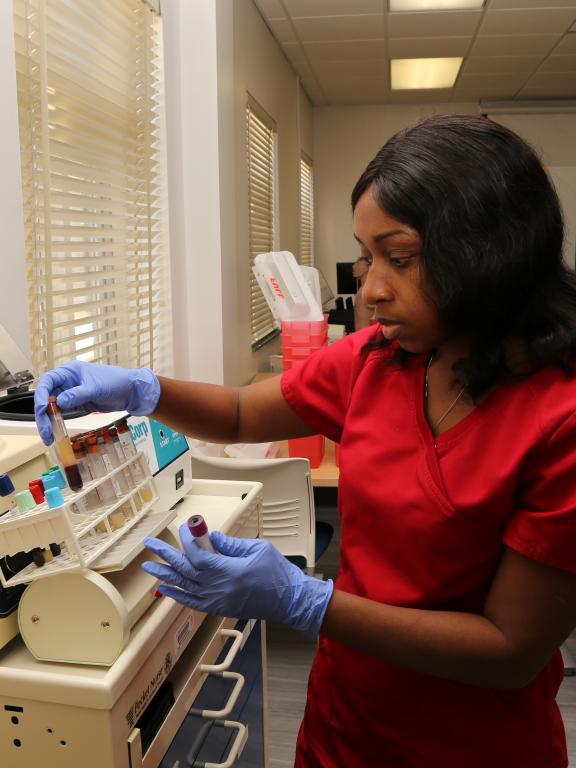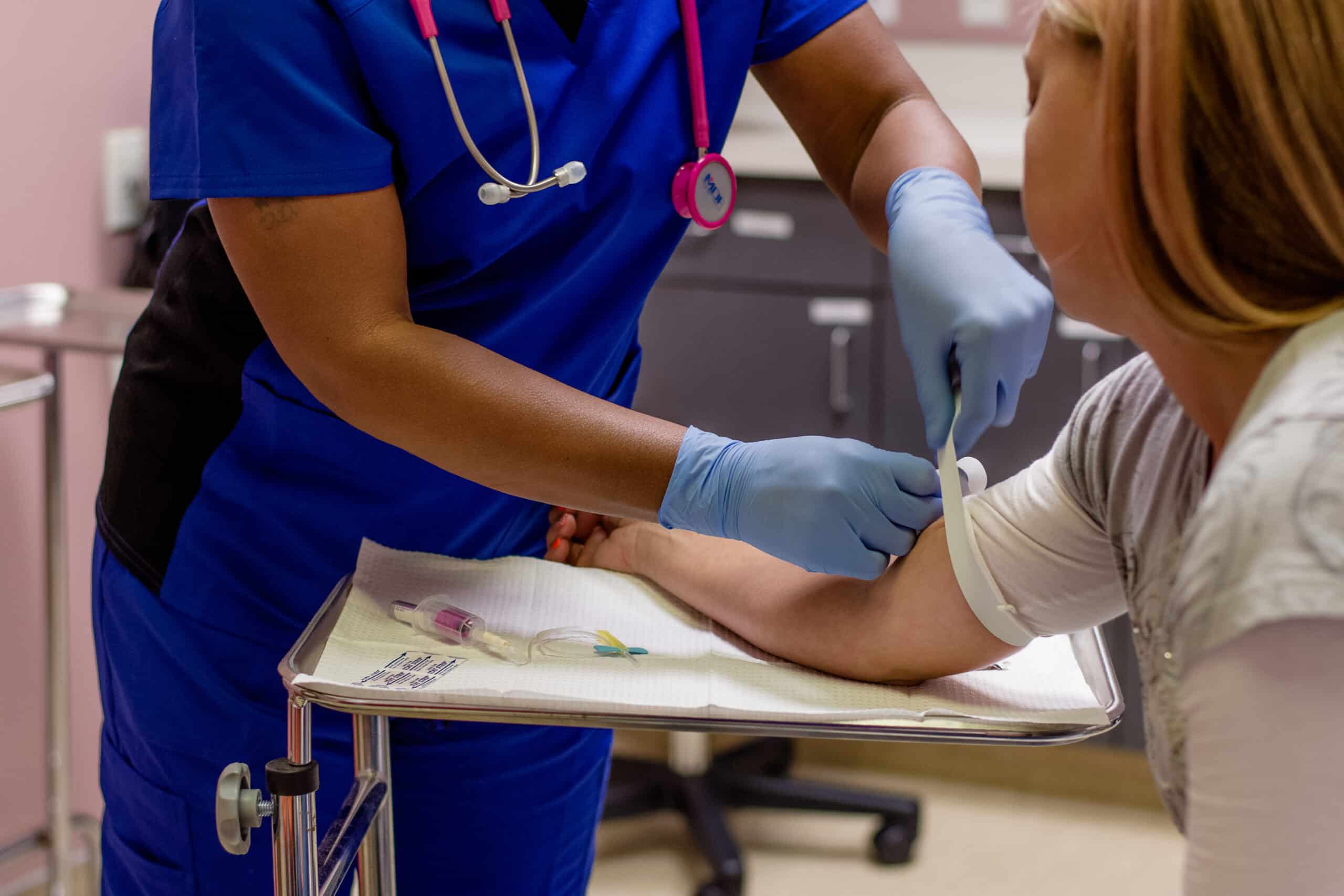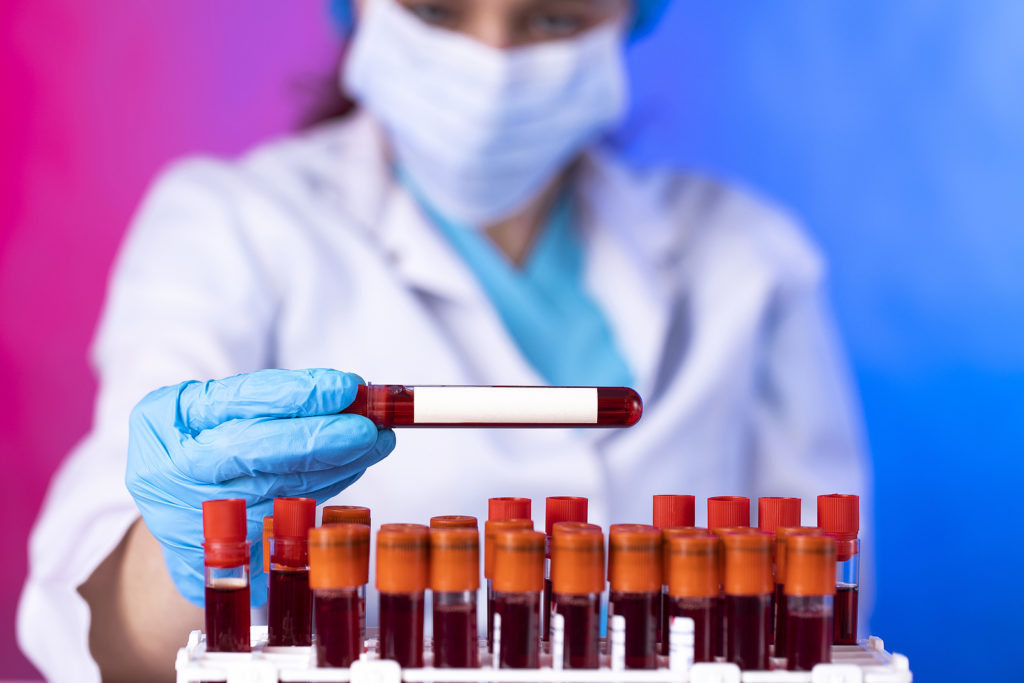Phlebotomy school FAQs: Get Informed Before You Begin
Phlebotomy school FAQs: Get Informed Before You Begin
Blog Article
The Path to Qualification: Recognizing the Phlebotomy Educating Course Journey and Its Importance
As you consider the path to accreditation in phlebotomy, it's essential to comprehend the function you'll play in healthcare. Your training will cover vital skills, from blood collection methods to patient interaction.

The Duty of Phlebotomists in Medical Care
Phlebotomists play a crucial role in the healthcare system, serving as the vital web link in between individuals and important analysis testing. You'll perform blood attracts, making sure samples are accumulated precisely and securely. Your competence helps in detecting clinical conditions, checking health and wellness, and guiding therapy choices.
In your everyday communications, you'll need to develop count on with people, making them feel comfy during what may be a difficult experience. You're liable for labeling and handling samples meticulously to avoid contamination or mistakes, which could impact examination results.
Beyond this, you'll typically function along with medical professionals and nurses, communicating important information about individuals' problems. By understanding your abilities, you add meaningfully to person care, making you a vital component of the clinical group.
Overview of Phlebotomy Training Programs
When checking out phlebotomy training programs, you'll discover different kinds made to fit different routines and finding out designs. Each program helps you develop necessary abilities like blood collection and person communication. Understanding these alternatives is vital to picking the ideal course for your occupation.
Kinds Of Training Programs
Several sorts of training programs are readily available for those seeking to end up being proficient in phlebotomy. You can pick from certificate programs, which generally last a few months and concentrate on vital skills. There are additionally diploma programs that supply a more comprehensive education and learning, commonly lasting as much as a year. If you're looking for a much deeper understanding, an associate degree in a relevant area might be the appropriate fit. On the internet courses supply versatility for those stabilizing work or family members dedications, allowing you to examine at your own rate. Additionally, some health centers and centers provide on-the-job training programs, providing sensible experience while you discover. Whatever path you pick, each program aims to outfit you with the needed skills for an effective phlebotomy profession.

Trick Abilities Established
Mastering phlebotomy calls for a set of vital skills that are created with thorough training programs. You'll discover technological abilities like appropriate capillary option, needle insertion, and blood collection techniques. These hands-on techniques guarantee you can do treatments safely and successfully. In addition, communication abilities are essential; you'll need to engage with clients, clarify procedures, and placed them comfortable. Recognizing composition and physiology is essential, as well, as it aids you locate veins and recognize the body's response to blood draws. Finally, you'll gain knowledge of safety protocols and infection control, assuring you maintain a clean and sterile setting. Each of these abilities is vital for your success as a licensed phlebotomist, making you a valuable property in any type of healthcare setup.
Secret Components of a Phlebotomy Program
In a phlebotomy course, you'll concentrate on important subjects that prepared for your future occupation. You'll take part in hands-on training that permits you to apply what you have actually learned in real-world settings. Both the curriculum and useful experience are essential for your success as a phlebotomist.
Core Curriculum Introduction
While seeking a phlebotomy training course, you'll come across a core curriculum developed to outfit you with basic skills and understanding. Phlebotomy school. This educational program usually consists of anatomy and physiology, focusing on the blood circulation system and understanding blood components. You'll likewise find out around different types of blood collection methods, including venipuncture and capillary slit strategies
Additionally, infection control and security protocols are vital elements, guaranteeing you recognize how to preserve a sterilized setting. You'll research patient communication, stressing communication and empathy, which are crucial for alleviating person anxiousness. Finally, ethical and legal considerations will be attended to, preparing you for real-world duties. This foundational understanding will certainly allow you to stand out as a phlebotomist and give top quality treatment in clinical settings.
Hands-On Training Experience
Getting hands-on experience is a crucial part of your phlebotomy training program. This useful training permits you to apply what you have actually discovered in a real-world setup, enhancing your abilities and confidence. Phlebotomy Training Course.
In addition, you'll get the possibility to interact with clients, which is essential for establishing your interaction skills. This combination of technological proficiency and interpersonal abilities is important for your success as a certified phlebotomist. Eventually, hands-on training is where concept meets method, strengthening your expertise and readiness for qualification.
Qualification and Licensing Requirements
Before you can begin your job in phlebotomy, it is important to comprehend the qualification and licensing needs that vary by state. Many states need phlebotomists to hold a qualification from a recognized organization, such as the National Phlebotomy Organization or the American Culture for Professional Pathology. These certifications normally entail passing a test that tests your knowledge and abilities in the area.
In addition to certification, some states have particular licensing demands. You may need to complete a specific number of hours in scientific method, send evidence of training, or go through a history check. It is vital to investigate your state's laws to make certain you fulfill all essential standards.
Remaining educated concerning these needs not just aids you safeguard a placement however likewise improves your reputation as a professional. By fulfilling these requirements, you'll be well on your way to an effective occupation in phlebotomy.
Hands-On Training and Practical Experience
Hands-on training and functional experience are necessary parts of your phlebotomy education and learning, as they enable you to apply theoretical expertise in real-world scenarios. Throughout your training, you'll engage in supervised venipuncture, learn proper techniques, and come to be acquainted with numerous blood collection tools. This straight involvement is vital for building your confidence and honing your abilities.
You'll function carefully with skilled professionals that can lead you with the nuances of client interaction and example handling. Each practice not only strengthens i loved this your understanding but additionally prepares you for the busy atmosphere of healthcare setups.
Furthermore, numerous programs incorporate clinical turnings, enabling you to experience diverse setups, from health centers to outpatient centers. This exposure aids you adapt to different obstacles and patient demands, guaranteeing you're well-prepared for your future role. Welcome these chances, as they're vital to coming to be a competent and thoughtful phlebotomist.
Challenges Encountered During Training
While gaining hands-on experience is important, it is essential to acknowledge the obstacles that can occur throughout your phlebotomy training. You might come across anxiety when carrying out treatments on actual clients, particularly if you're brand-new to the environment. The pressure to get every little thing right can be frustrating. Additionally, grasping the abilities needed for blood attracts takes practice; you may battle with strategy originally.
Time management can likewise be an obstacle, as balancing theory, functional sessions, and personal commitments can feel challenging. You might deal with differing discovering speeds amongst your peers, causing sensations of insecurity if you believe you're falling behind. Adapting to the various individualities of teachers can be tough, as each might have a special training design.
Identifying these obstacles at an early stage can prepare you for success and help you develop resilience throughout your training trip.
Job Opportunities After Certification

As you acquire experience, you could even take into consideration specializing in locations like pediatric or geriatric phlebotomy, accommodating details client demands. Some phlebotomists choose to progress their careers by ending up being laboratory service technicians or seeking further education and learning in medical care fields.
In addition, your certification can result official website in duties in training or supervising new phlebotomists, permitting you to share your knowledge. With the health care sector continually growing, your abilities will certainly always remain in need, leading the way for a steady and satisfying job. Embrace the possibilities awaiting you!
Frequently Asked Questions
What Is the Regular Period of a Phlebotomy Training Program?
Phlebotomy training programs usually last around 4 to eight weeks. You'll involve in hands-on technique, classroom guideline, and on the internet discovering. Finishing this training prepares you for certification and a fulfilling profession in health care.
Are Online Phlebotomy Courses Available?
Yes, on the internet phlebotomy courses are available. They provide adaptability and benefit, permitting you to study at your own speed. Simply validate the program is accredited to satisfy qualification demands and get beneficial abilities for your job.
Just How Much Does Phlebotomy Training Generally Expense?
Phlebotomy training normally sets you back in between $700 and $2,500, relying on the program and area. You should consider elements like course length, consisted of products, and hands-on experience when picking the best training for you.
What Are Usual Requirements for Phlebotomy Training?
Usual requirements for phlebotomy training frequently consist of a secondary school diploma or GED, immunizations, and a history check. Some programs may likewise require standard healthcare expertise or certifications, guaranteeing you're prepared for hands-on training.
Can I Function While Completing My Phlebotomy Training?
Yes, you can function while completing your phlebotomy training. Lots of students balance work with their research studies, yet make specific to handle your time efficiently to assure important link you meet both work and training dedications successfully.
Report this page